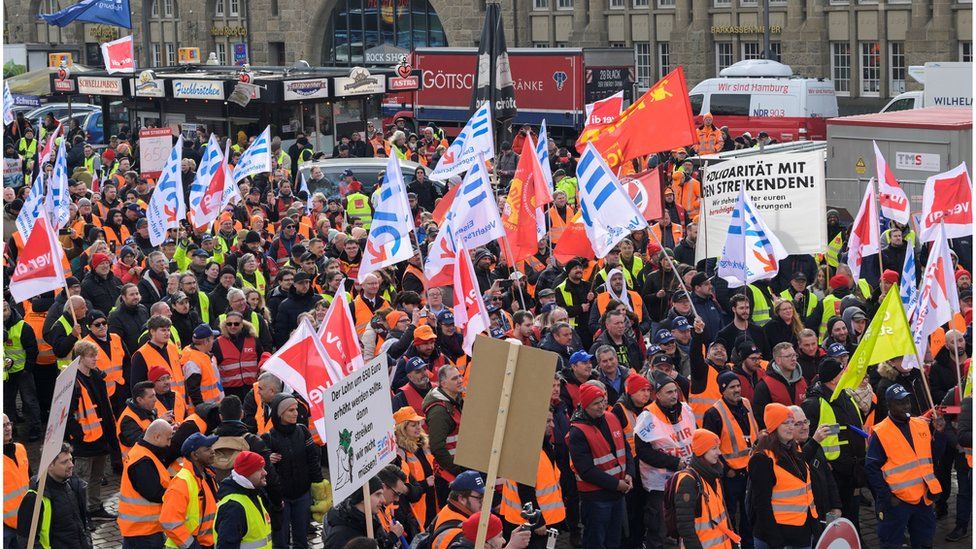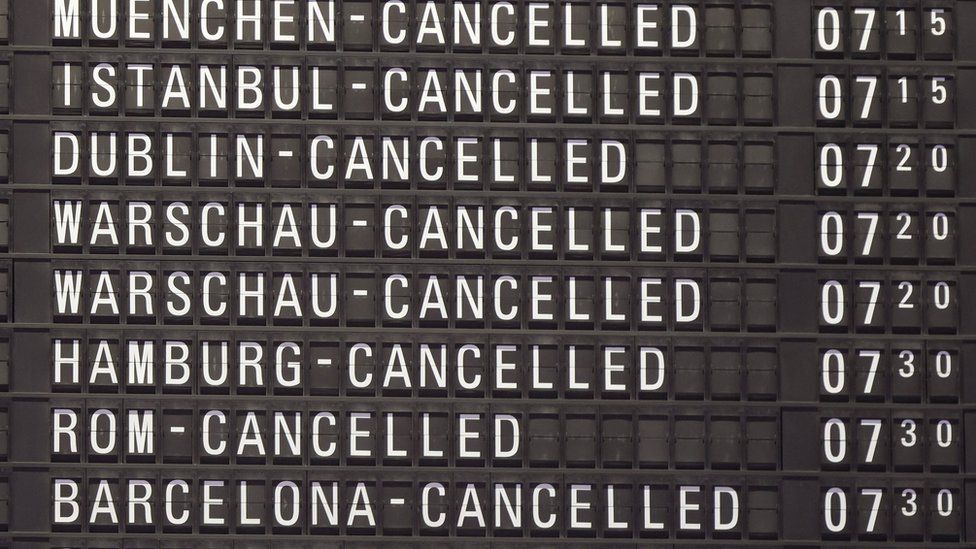Germany ‘Mega Strike’: Thousands Of Flights Cancelled As Public Transport Network Is Halted Over Pay

Germany’s transport network is at a near standstill as the country experiences one of the largest strikes in decades.
Staff at airports, ports, railways, buses and subways walked out shortly after midnight for a 24-hour stoppage.
Two of Germany’s largest unions are demanding higher wages to help their members cope with the rising cost of living.
There have recently been smaller walkouts by other public servants.
The “mega strike”, as it has been dubbed in local media, has affected commuter and regional trains operated by Deutsche Bahn, Germany’s national rail operator.
Local transport services, including trams and buses, are also not operating in seven states.
“Petrol and food prices have risen,” one protester in Berlin told the AFP news agency. “I’m feeling it in my wallet.”

Thousands of flights have been cancelled, including at two of the country’s biggest airports – Munich and Frankfurt.
Multiple flights from Munich Airport were also disrupted on Sunday by strike action.
“I am a bit shocked actually,” said one man, who was trying to fly to the Spanish city of Málaga. “I didn’t hear of it [the strike], so I have to find out what to do right now.”
Germany’s airport association said about 380,000 air travellers would be affected by the strike but added it was “beyond any imaginable and justifiable measure”.
Jenny Hill, the BBC’s Berlin correspondent, said it was very rare for a dispute over pay to escalate so dramatically in Germany, but this time two of the country’s largest unions have joined forces.
Verdi represents about 2.5 million employees across the public sector, including in public transport and at airports. It wants to secure a 10.5% pay rise for staff.
EVG represents about 230,000 employees at Deutsche Bahn and other bus companies. It wants a 12% rise in pay.
Both unions hope the strike will increase pressure on employers ahead of another round of pay negotiations this week.
In an interview with the German newspaper Bild, the chief of Verdi, Frank Werneke, described the pay rise as “a matter of survival for many thousands of employees.”
“The people are not only underpaid, they are hopelessly overworked,” he said.
EVG chairman, Martin Burkert, told the regional Augsburger Allgemeine newspaper that employers had not yet made a viable offer to them and warned there could be further strikes, including over the Easter holiday break.

Deutsche Bahn is among the organisations that have condemned the strike, describing it as “completely excessive, groundless and unnecessary”.
Some employer representatives have also warned the unions are making unreasonable demands that risk alienating the public.
Nevertheless, successful wage increases have been negotiated recently. Postal workers won an 11.5% pay rise in early March.
Monday’s strike follows a similar walkout in February. More than 2,300 flights were cancelled and representatives of small and medium business associations accused the unions of taking the whole country hostage for their own interests.
There have also been multiple walkouts by other public service sectors in recent weeks, including childcare and education.





